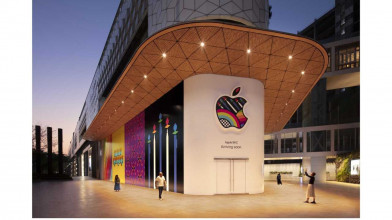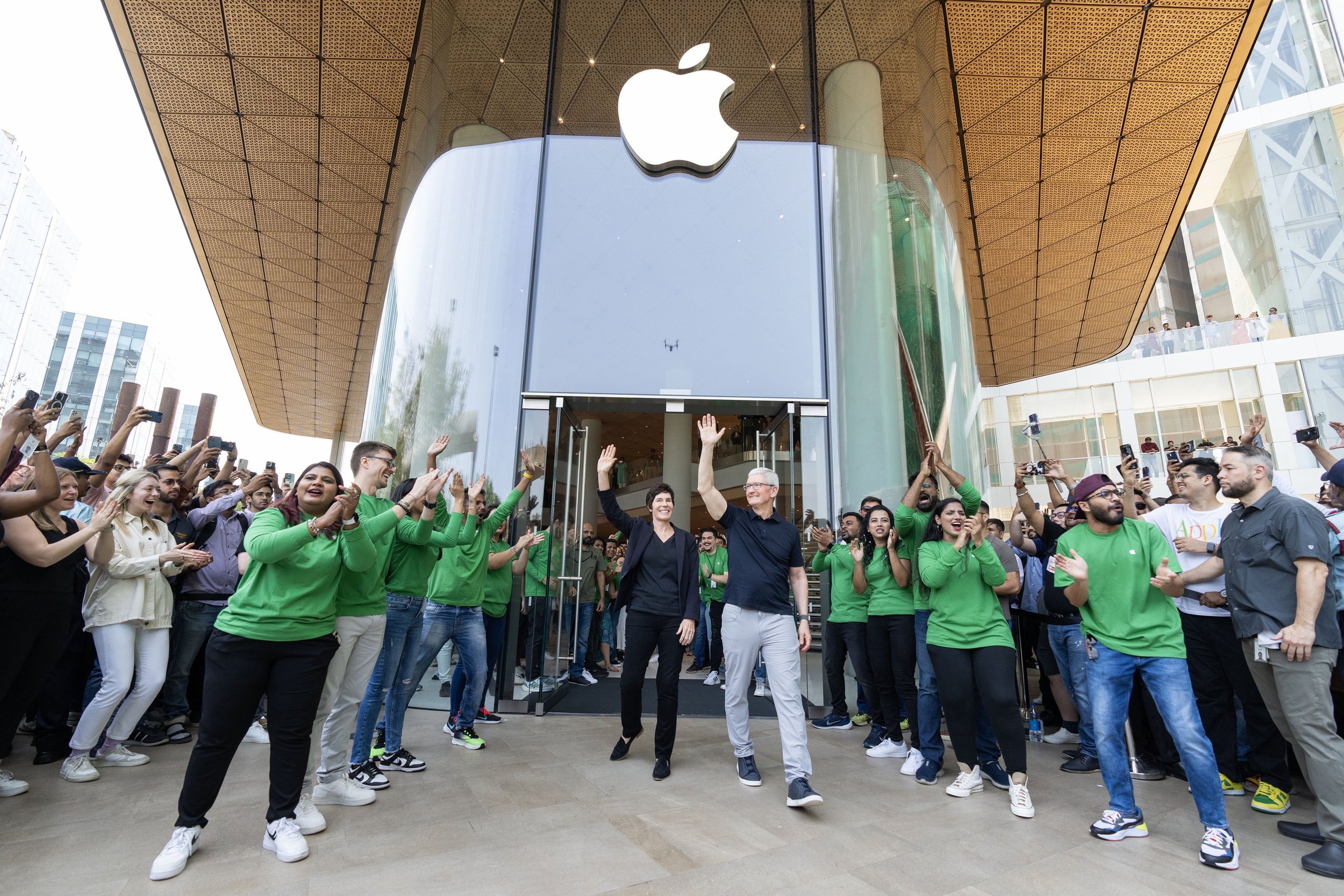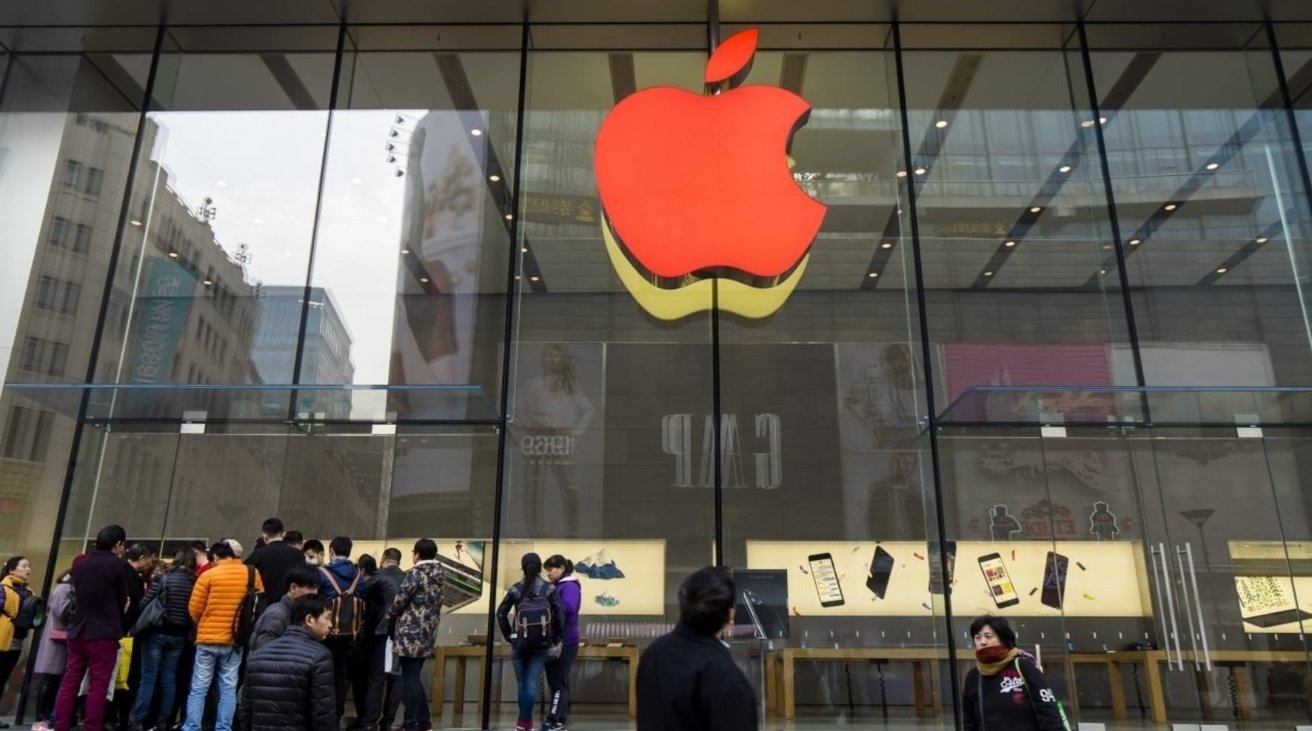
Apple, one of the world’s most iconic brands, is reportedly planning to expand its footprint in India by opening four new retail stores across the country. This news comes at a time when the company is looking to capitalize on India’s rapidly growing tech market. But with rising competition from local players and questions surrounding Apple’s pricing strategy, one has to wonder: Is this the right move for the tech giant?

Is Apple Underestimating Local Competitors?
With four new Apple retail stores set to open, the company seems optimistic about its growth in India. But here’s the question: Is Apple underestimating the power of local competitors?
India has been home to several tech brands that have gained considerable market share, including Xiaomi, Samsung, and Realme—brands that offer high-quality smartphones and devices at prices much more affordable than Apple’s offerings. With an ever-growing middle class, many consumers are turning to these local brands that are seen as offering more value for money.
The high prices of Apple’s products have always been a sticking point in the Indian market, and opening more retail stores could either help the brand make a more personal connection with customers or highlight the gulf between affordability and exclusivity.
But will these new stores make Apple’s products more accessible, or will they only serve to deepen the divide between luxury buyers and the average Indian consumer?
Is India Ready for Four New Apple Stores?
India’s tech-savvy youth is one of the primary reasons Apple wants to double down on the market, but with India’s economy still grappling with high inflation rates, the big question is: Is now the right time for Apple to expand?

Yes, India is becoming an attractive market for tech companies, but it is also a price-sensitive market. Apple’s products, especially the iPhone, come with a hefty price tag that is often out of reach for the average Indian consumer. By opening four new retail outlets, Apple seems to be banking on the increasing buying power of urban elites. But will this strategy alienate the broader population who are turning to cheaper, equally efficient alternatives?
Four Stores: But Where’s the Local Manufacturing Push?
Another issue that raises eyebrows is Apple’s manufacturing strategy. Apple has already started making some iPhone models in India, but the majority of its products are still manufactured abroad. While opening new retail stores is a bold move, wouldn’t it make more sense for Apple to focus on local manufacturing first?
India is heavily pushing for local production under the Make in India initiative. Expanding manufacturing operations here could bring down prices and create jobs—something that would resonate deeply with Indian consumers. Yet, Apple’s focus on expanding its retail presence rather than manufacturing has left many questioning its long-term commitment to India.
Is Apple more interested in selling premium products to a select few rather than making affordable, high-quality devices for the masses?
What About the Rising Competition?
The timing of this expansion is also notable, as Apple faces increasing competition from local giants and global players alike. The Indian market is flooded with budget smartphones that offer exceptional features. Brands like OnePlus, Xiaomi, and Samsung have gained significant traction by understanding the Indian consumer’s need for value.
With the announcement of four new retail stores, Apple seems to be sending a clear message: It’s not here to compete on price, but on luxury and exclusivity. But will this gamble pay off in a country where consumers are becoming more tech-savvy and price-conscious?
Local brands have done exceedingly well by catering to Indian preferences with innovative features, localized marketing, and, most importantly, competitive pricing. Apple, on the other hand, is known for its premium image, but can it continue to thrive in a market where affordability often outweighs brand loyalty?

What’s the Bigger Picture for Apple?
Apple’s focus on retail expansion in India is clear: the company is doubling down on its premium brand image. These new stores, likely to open in major metropolitan areas like Delhi, Mumbai, Bangalore, and Chennai, will cater to a niche market of affluent customers. But the company’s reluctance to adapt its pricing strategy or boost local manufacturing efforts leaves many wondering if Apple’s India strategy is truly in tune with the broader market needs.
Could this be a missed opportunity for Apple to not only expand its presence but also win over the middle-class Indian consumer, who forms the backbone of the country’s tech market?
The questionable pricing and focus on a select group of buyers may lead Apple to succeed in the short term, but in the long run, will this strategy be sustainable in a hyper-competitive and price-sensitive market like India?
Apple’s Risky Gamble
There’s no doubt that Apple’s expansion in India is a bold move, but it’s one that comes with significant risks. Local competition is getting stronger by the day, and consumers are no longer blindly loyal to global brands. They want value, and they want it at a price that doesn’t break the bank. The real question remains: Is Apple’s strategy of expanding retail stores while ignoring the wider market needs a recipe for success or disaster?
Apple will need more than just fancy stores and premium products to win over the Indian consumer. It needs to address the core issues that prevent it from becoming a true market leader in India. And that begins with making its products more accessible—not just for the elite, but for everyone.
